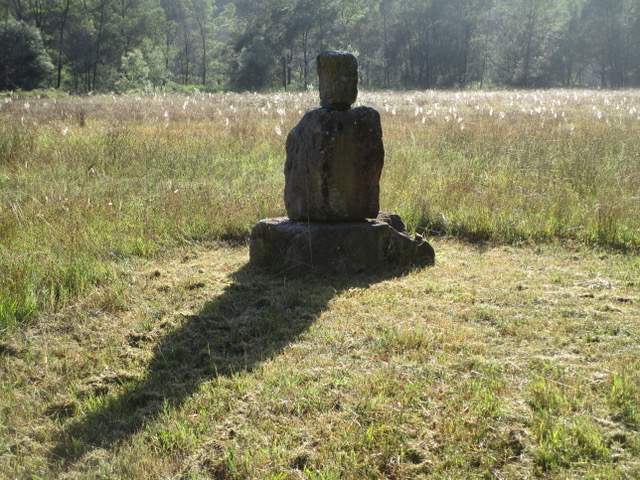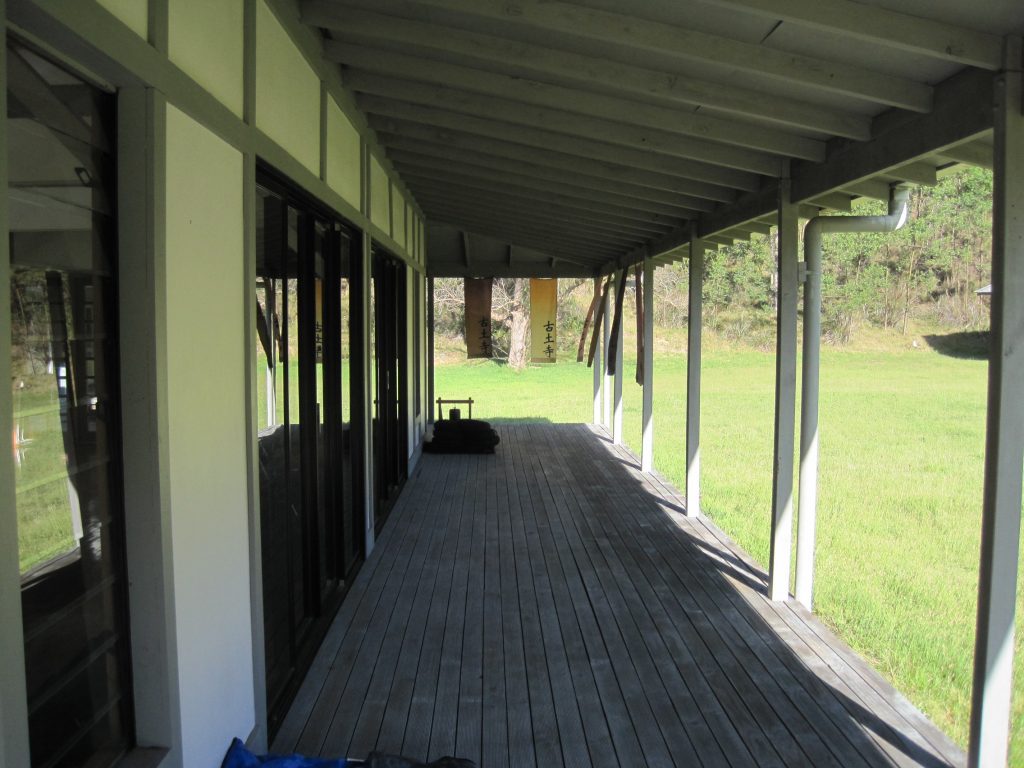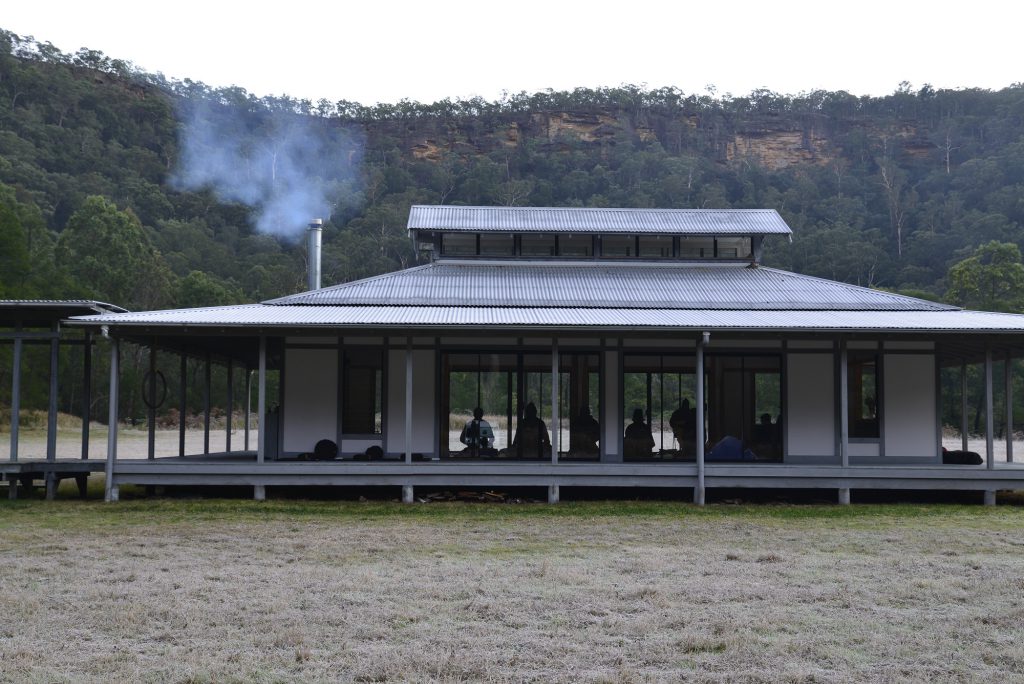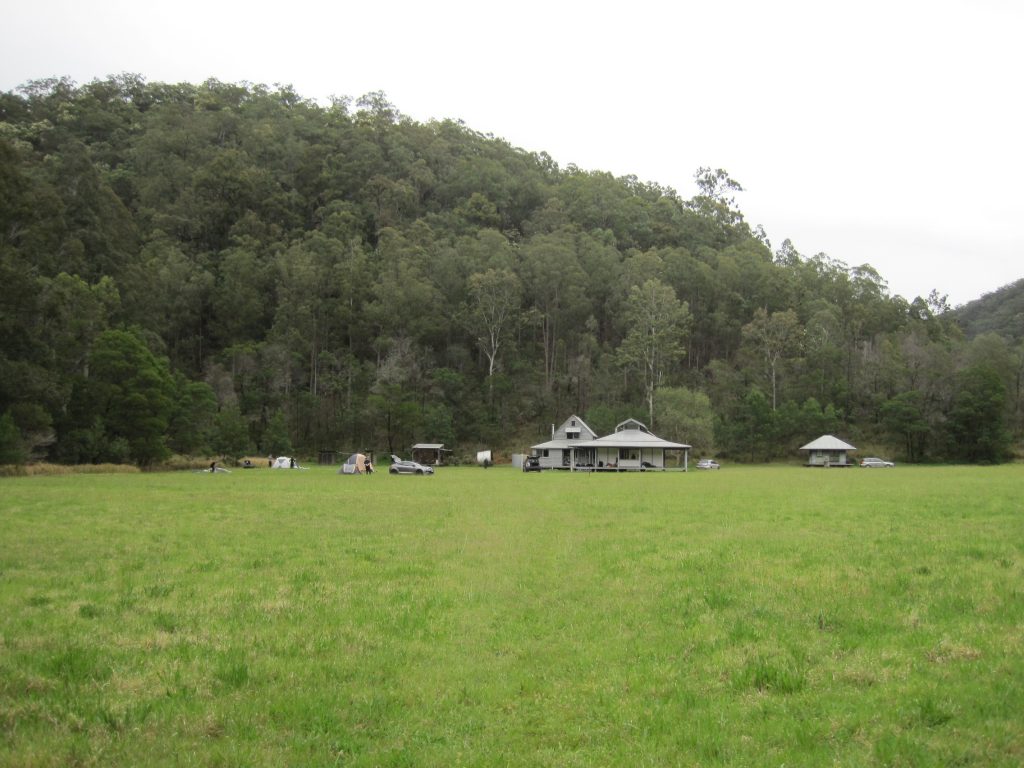Sydney Zen Centre members recognise and pay respect to the traditional custodians of the land – past, present and future – on which our bush zendo sits.
Kodoji, Ancient Ground Zendo at Gorricks Run, nestles in a deep valley beneath the high sandstone cliffs of Yengo National Park. It is approximately two hours north-west of Sydney near St. Albans.
There are several buildings on the property – a cottage equipped with a kitchen, a dining room, and a bedroom downstairs; with dormitory style sleeping quarters upstairs. There is a another smaller building (hojo) with a bed; and a large and magnificent dojo (meditation hall) which has won an architectural sustainability award. Separate buildings house pit toilets and bush showers (with a woodchip heater). Our lights are powered by solar energy, cooking is with gas and the water we use is rainwater captured on site. We warm the cottage and the large dojo in Winter with large wood heaters. The fuel is from dead trees on our property. Living simply in the environment aligns with our Buddhist precepts of doing no harm and saving all the many beings.
History
The land was purchased by sangha members in 1984. Hawkesbury Council granted planning permission for a religious retreat centre, based on plans prepared by Tony Coote. Samu, or work weekends, began with members camping on site, building tank stands, installing galvanised iron water tanks, digging pit toilets and excavating an old access road. These samu weekends continued once a month over many years, with the sangha volunteering their labour to build the two-storey cottage and the wash-house.
During these years, sesshin (traditional Zen retreats) led by John Tarrant, one of Robert Aitken Roshi’s dharma heirs, took place in the cottage, students sitting upstairs and down. Teisho (dharma talks) were given under an ancient chestnut tree or downstairs in the cottage.
Dokusan (interviews with the teacher) took place in a tent. Kerosene lamps provided lighting, and a chip-heater gave hot water for showers. During sesshin, most people camped out in the paddock.

In 1988 the hojo building was completed. In 1995, after protracted meetings with Council and concern by a few local residents, plans for the new dojo were finally approved. By this time, most of the loans had been repaid and, using funds generated from sesshin fees, pledges and donations, our samu weekends resumed and construction of the dojo began.
After many weekends of building by the community, co-ordinated by architect and builder Tony Coote, Kodoji is a beautiful meditation hall, which won a Silver Medal in the 2002 Francis Greenway Society’s Green Building Awards. Sangha artists have also contributed their work: Tony Coote designed and made the wooden altar, Glenys Jackson made the altar cloth, Janet Selby sculpted the statue of Manjusri, and Patrick Forman made the han and offering dishes. The stone Buddha meditating in the paddock was designed and constructed by Brendon Stewart. Kodoji was opened on October 28, 2001 by Robert Aitken Roshi, SZC’s founding teacher.
Since we began our building project, the old chestnut tree has fallen down and solar-powered lighting has replaced kerosene lamps. Rainwater is now collected in three tanks. Our sangha building continues.
Hire
Kodoji is available for hire by groups who share a philosophical commitment to the Dharma, subject to consideration by the Board of the Sydney Zen Centre. Accommodation is simple, comfortable and sustainable. Kodoji offers a peaceful experience of living closely with nature.
For information on hiring Kodoji please contact Brendon Stewart:
stewarts34@bigpond.com





The images above were taken by David Moore at the SZC 2016 Winter Sesshin and Jill Steverson at SZC Spring sesshin 2019.
Find out what it’s like to live a simple life during a winter retreat at our award-winning Eco-designed zendo. Experience the intersection between environmental concerns and spiritual training at Kodoji, in the Hawkesbury River region, west of Sydney. This video was made for the ABC RN program Encounter in 2009 and features Maggie Gluek, roshi.
